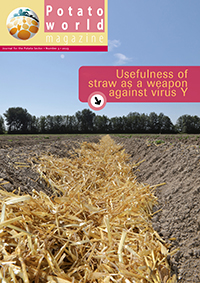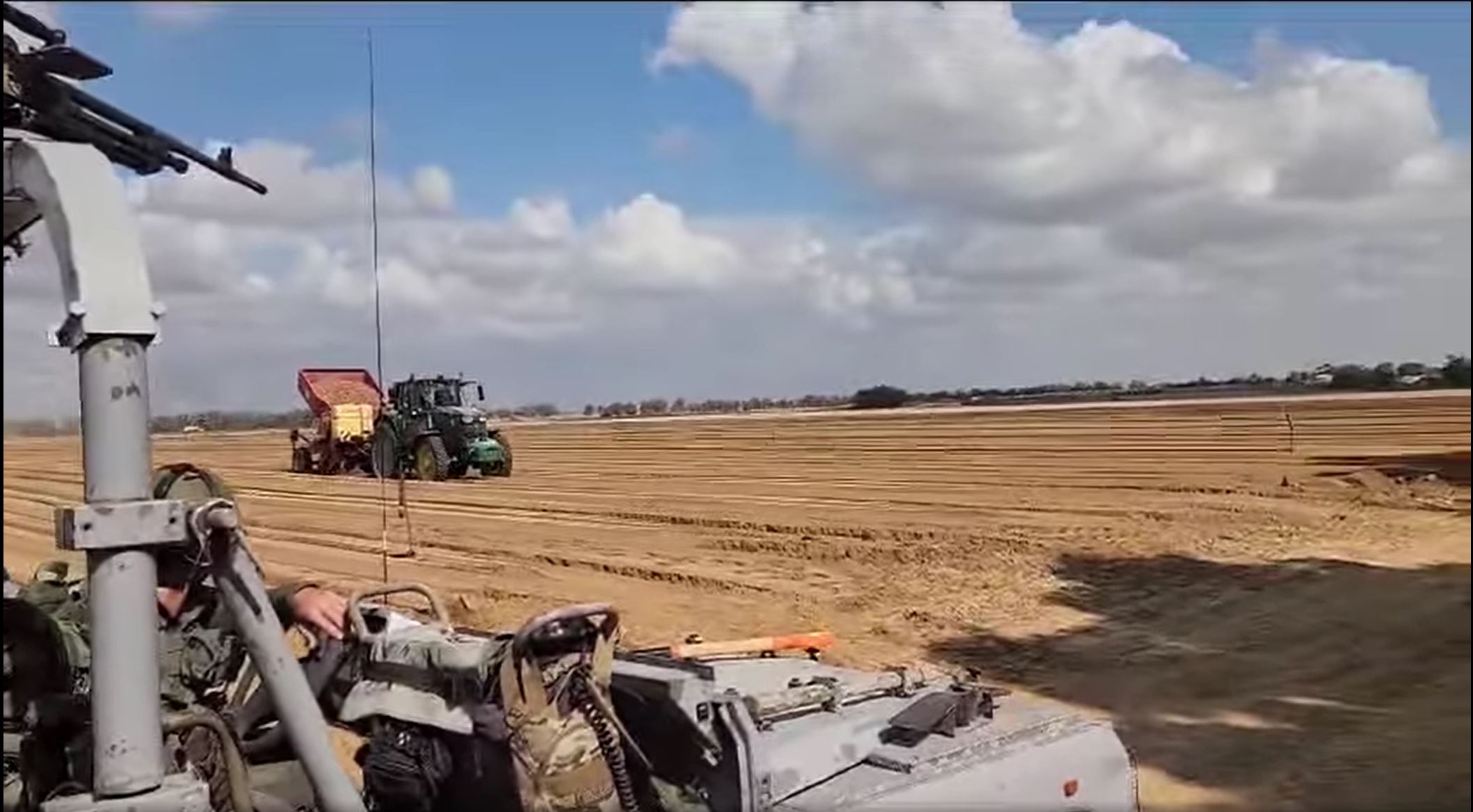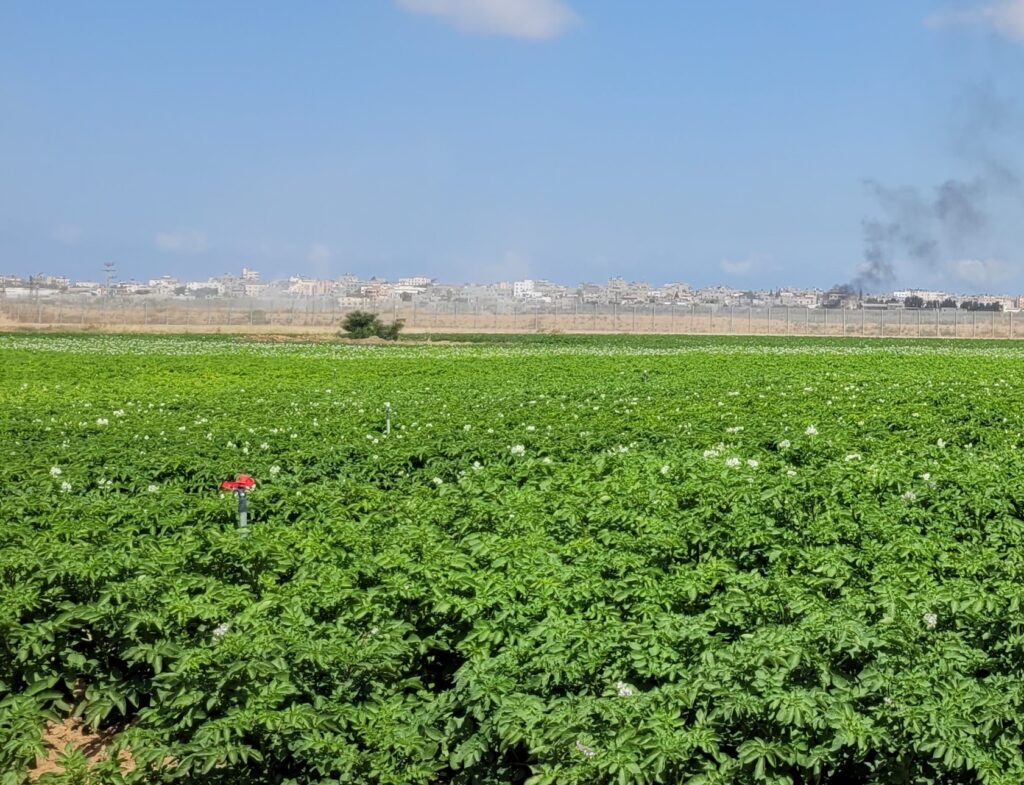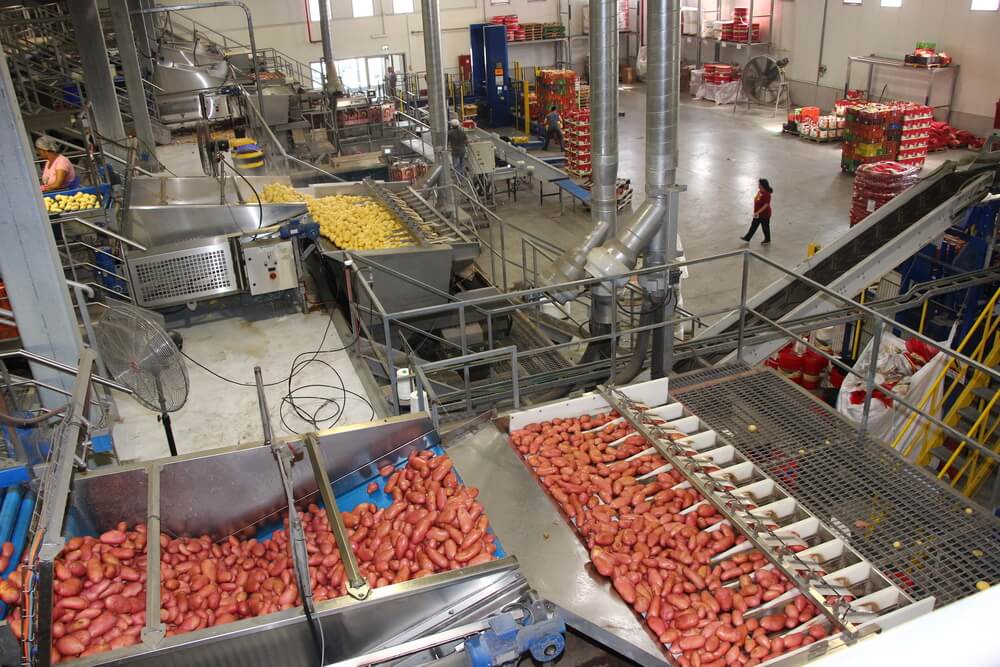Already a subscriber? Activate your premium account

Potatoworld Magazine

On last Saturday October 7, Israel was attacked from the Gaza Strip by members of the terrorist organisation Hamas, also affecting many kibbutzim. In the process, hundreds of people were injured, killed and taken hostage. The consequences are a war with great impact for residents in the region, the world and also for the potato sector. Jacky Behare of Israeli seed potato importing company Orleanski Agencies Ltd explains the impact.
‘Agriculture and also most potatoes grow in southern Israel, in the Negev desert. This is the area where the Hamas attacked Israel and killed and kidnapped many people. The reason potatoes grow in this area is that there is a lot of space to grow, so growers can keep a wide rotation. Besides, the water is cheaper because we use recycled water there. Furthermore, this part of the country’s weather and growing conditions are more attractive for potatoes than in the north. There are many sandy plots, where you can harvest well in winter. Many plots are north, east or southeast of the Gaza strip. Right in the area that is now closed to civilians,’ Behare outlines the situation.

‘Right now, the planting season of winter crops, the main growing season in Israel, is coming to an end. Planting starts in mid-September and continues until the end of October. In this crop, we use seed potatoes grown in Israel in the spring by specialised local seed potato growers. It is not possible to import seed potatoes from Europe in September and plant them out directly,’ explains the potato specialist.
‘In the region close to the Gaza Strip, several growers are active. Many coop in communal settlements known as kibbutzs. Kibbutzs grow and pack potatoes in cooperatives. One of these larger cooperatives in the region is Hevel Ma’on, which belongs to 14 kibbutzs. The fields of these growers are located just outside the Gaza Strip, as is the packing station. Hevel Ma’on packs 120,000 tonnes of potatoes every year, including 70,000 tonnes in the winter season and 50,000 tonnes in the spring. Of the total production, they export 50 percent, all of it to Europe. Most exports take place in winter. The spring crop is sold more locally because harvesting does not start until May-June. That’s usually too late in the season to export, because that’s when the first firsts in Europe hit the market,’ Behare explains.

‘A direct consequence of the war is that you cannot get to the potato plots within four kilometres of the border. This area has been cordoned off by the army. Plots that have already been planted can therefore not officially reached by growers. Yet there are growers who sneak into the area to turn on sprinklers and treat already planted fields of growers who were killed, kidnapped or injured. We know how to avoid the army. We would like to save as many potato plots as possible, despite these plots being in the danger zone,’ Behare stressed the importance of potato cultivation. ‘Outside this zone, both cooperatives and private potato companies, are now fully active in planting potatoes, often under army guard. We expect food shortages in the local market in the coming months, due to the lack of workers. Many workers from Thailand have been killed and survivors want to return to their homeland as soon as possible. That means it is not possible to plant labour-intensive crops like fruity and leafy vegetables. To have enough food available, we need to provide our population with food that is relatively easy to grow and harvest, while having good caloric and nutritional value. That is potatoes. Looking 4 months ahead, there will be less exports and more sales in the local market to feed our population. We will continue to provide exports to maintain our brand name as well, but there will be less availability,’ he outlines the expected potato market this winter. ‘Regarding seed potato imports from the Netherlands, among others, a lot is still unclear right now,’ he reveals. Last year, the Netherlands exported almost 15,000 tonnes of seed potatoes to Israel.

‘The potato market in the Palestinian Gaza Strip is also under pressure. They mainly grow a lot of Spuntas there. Imports of these seed potatoes go through Israel. Because the borders here are now closed, less acreage will also be planted out there and less quantity will be available this winter,’ Behare explained, stressing that there was good cooperation between potato growers and traders from Gaza and Israel. ‘There was free passage of seed potatoes and people trading in potatoes. At the end of August, another Palestinian delegation had travelled from Gaza to discuss trade. In the past, the growers worked together just fine, but now everything is at a standstill. And the question is how to proceed. I hope that a new balance can be restored so that we can start building things again.’
Events
©2015 - 2024 Potatoworld | Webdesign and realisation COMMPRO